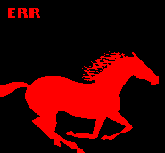
AUCTIONS
Initiate An Investigation
Initiate An Investigation
Equines at auctions are protected under the Animal Welfare Act and state anti-cruelty statutes.
Who in your town, county, or state investigates and enforces the anti-cruelty codes? Contact them. These people alot of times work for local humane societies, societies for the prevention of cruelty to animals (SPCAs), or animal shelters.
If you cannot locate the proper person, call or visit your local law enforcement and ask for help in enforcing the law. If you do not get satisfaction from your local police, contact your state police.
If time permits, check the county and state law books in your local library. The state statute and county code will tell you exactly what your laws prohibit a person from doing to an animal. You should make a photocopy to take with you, because sometimes the local law enforcement agents do not know the exact law. In most states, causing an equine "unnecessary suffering" is illegal, along with striking an animal, or depriving an equine of food, water and adequate shelter.
For effective law enforcement, you should provide the agent/officer assisting you with a factual statement of what you have observed, along with the details, dates and times. If you can, photograph the situation and date your photographs. Short, factual, written statements from other witnesses are helpful.
Keep a record of who you contacted, the date of the contacts, and the content and outcome of your discussions with each of them. Never pass on a letter or document without making a copy for your file. Make it is understood that you will pursue this case and are willing to help, if needed.
If you are not able to get satisfaction from the enforcement officers, present your documented case to their supervisors. If that doesn't work, try your local government officials. If you witnessed the cruel act yourself, you can go to your local police commissioner and ask to swear out a warrant to summon the accused person to court.
Sometimes expert witnesses may be necessary to the case. (i.e. a veterinarian can sign a statement that in their "expert opinion" that a horse suffers if forced through an auction ring while debilitated, or it is deprived of food, etc.) Expert opinions often make or break a case, so if you know a veterinarian, contact him or her. See if that vet is willing to help, and then tell the officer you have expert support.
If the horse is in your position, a chain of evidence must be followed. You need to call your veterinarian, have them run a full blood work up and a fecal. You need to find out WHY the horse is in the condition it is, and that there is not an underlying medical condition. If all tests come back normal, then it is much easier to make a true assessment of what the situation is. i.e. you have an emaciated horse, then you would know that the condition was induced by a lack of food and you have a starvation case.
As a last resort, you can contact local newspapers or television stations. A news story may embarass officials and force them to act. Again, witnesses are helpful, and others who have seen similar acts could be encouraged to step forward.